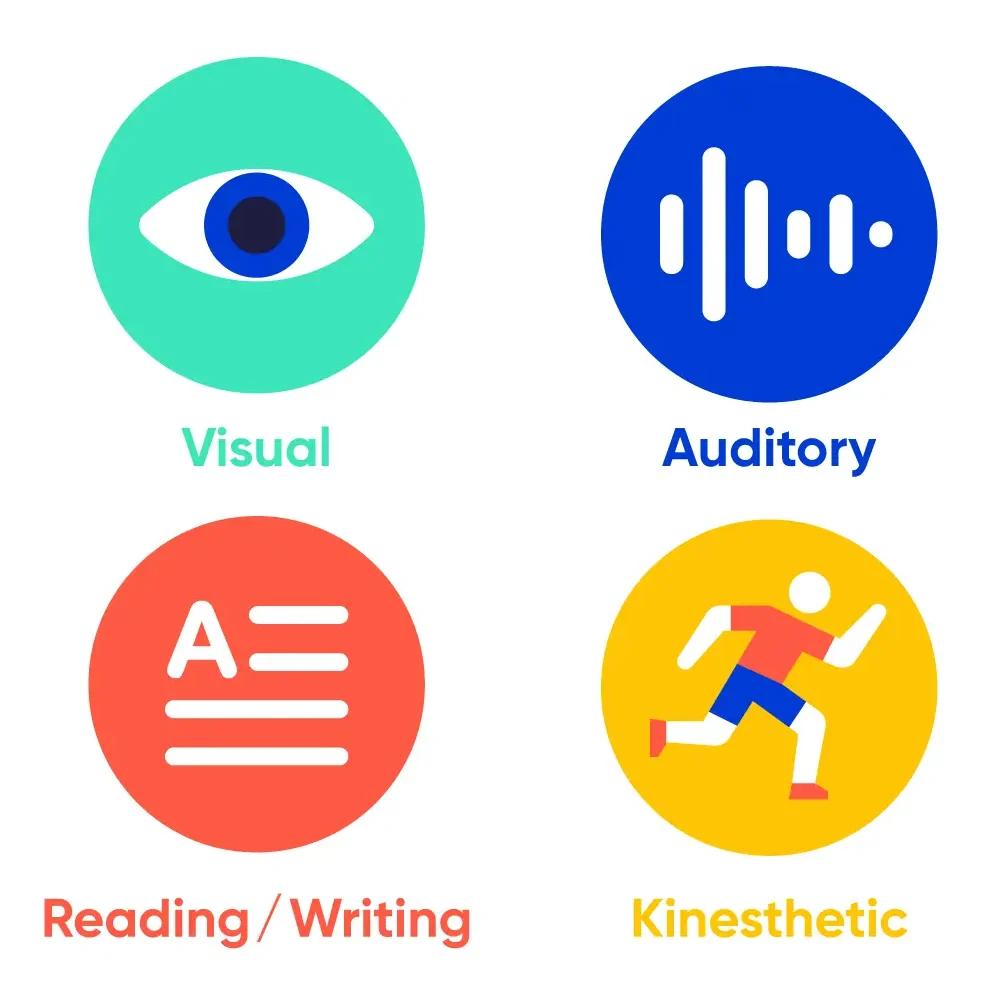


Issued by:
Handbook Demo

When considering the proficiency of the Care Worker you are assessing practically, please use the following as a guide:
⭐ Beginning – Beginning to learn but needs lots of support and guidance.
⭐⭐ Developing – Understands some information but still has lots of questions. Still developing the idea.
⭐⭐⭐ Proficient – Fully understands the topic and is ready to learn about using this further.
⭐⭐⭐⭐ Advanced – Completely understand s the topic and can apply it to many different areas of practice. Could teach others.
When considering the proficiency status of the Care Worker you are Supervising please use the following as a guide:
⭐ Beginning – Often requires guidance to complete basic tasks; still learning the fundamental aspects of the job.
⭐⭐ Developing – Handles routine tasks independently but frequently seeks clarification on more complex issues.
⭐⭐⭐ Proficient – Consistently performs tasks accurately and efficiently; shows readiness to take on more challenging responsibilities.
⭐⭐⭐⭐ Advanced – Excels in all job-related tasks and demonstrates a deep understanding of the work; effectively mentors others and leads by example.

This preference includes the depiction of information in maps, spider diagrams, charts, graphs, flow charts, labelled diagrams, and all the symbolic arrows, circles, hierarchies and other devices, that people use to represent what could have been presented in words.
It does NOT include still pictures or photographs of reality, movies, videos or PowerPoint. It does include designs, whitespace, patterns, shapes and the different formats that are used to highlight and convey information.
When a whiteboard is used to draw a diagram with meaningful symbols for the relationship between different things that will be helpful for those with a Visual preference. It must be more than mere words in boxes that would be helpful to those who have a Read/write preference.

Individuals who are audio learners do their best when physically listening to the content being taught to them. Traditional in-house training sessions are beneficial to these types of people, as they can hear the information. When you transition to an online training platform, these types of learners will benefit from more voice-over videos, audio recordings, and uploaded in-house training recordings. With an online solution, a big bonus for these learners is that they can always rewind and re-listen to the learning material and really retain the information.

This preference is for information displayed as words. Not surprisingly, many teachers and students have a strong preference for this mode. Being able to write well and read widely are attributes sought by employers of graduates.
This preference emphasizes text-based input and output – reading and writing in all its forms but especially manuals, reports, essays and assignments.
People who prefer this modality are often addicted to PowerPoint, the Internet, lists, diaries, dictionaries, thesauri, quotations and words, words, words… Note that most PowerPoint presentations and the Internet, Google and Wikipedia are essentially suited to those with this preference as there is seldom an auditory channel or a presentation that uses Visual symbols.

These learners retain the most amount of information with their senses, as they learn via experience. This even includes tasting, touching, and smelling. Essentially, these employees learn best by experiencing things hands-on. As an example, if you are training your employees on some new safety procedure, you should also try to give them an in-person scenario to help simulate the situation e.g. how to operate machinery properly.
Also keep in mind that these individuals are more emotional when learning, and since online training accommodates audio and visual learners more, it’s important to be creative when training kinesthetic learners. While they are going through their online training, give them physical tasks they can complete simultaneously. For example, if you are the franchiser teaching employees how to cook a dish, have them try to cook it while watching the video at the same time.

The VARK theory of learning says that people learn in different ways and that there are four main ways that people learn: Visual, Auditory, Reading/Writing, and Kinesthetic. People may have a preference for one of these modes, but most often, people use a combination of these modes.
This is why the VARK questionnaire gives you four scores to help you understand your learning style. If you don’t have a clear preference for one mode, you are considered a “multimodal” learner, which means you use a mix of all four modes to learn.

Activists are individuals who prefer to learn through practical and interactive experiences. They are not afraid of taking risks and jumping into new situations, eager to learn through trial and error. They thrive in collaborative environments, and are often seen as natural leaders, guiding group brainstorming sessions to find solutions to problems.
Their passion for learning and seeking new experiences drives them to constantly look for new challenges and opportunities to expand their knowledge and skills. They believe that the best way to learn is through doing and they approach each new task with enthusiasm and determination.

Theorists are individuals who learn best through understanding the underlying principles and theories behind a concept.
They prefer to have a systematic and logical approach to learning, relying on models, concepts, and factual information to grasp new ideas.
They are analytical by nature and enjoy the process of absorbing information and forming their own theories and understanding. For them, it’s important that what they are learning has a clear logic and purpose.
They value rational thinking and ask questions to clarify their understanding and form their own opinions. To these individuals, a deep understanding of the theory behind a subject is crucial in order to effectively learn and retain information.

Pragmatists learn best when they can see how what they are learning can be put into practice in the real world.
They like to take a new idea they have learned and immediately try to put it into practice. They want to seek out new ways to use what they have learned in practice.
They are practical, down-to-earth types who like to get on and get things done.

Reflectors are people who learn best when they can observe others and think about what they have just observed. They avoid jumping straight in and prefer to watch first.
They like to collect data from many sources and perspectives, then think about it thoroughly before reaching any conclusion. They are cautious and like to consider all the angles before committing to action.

Not to be confused with one’s tendency to be open and disclose their thoughts and feelings, Openness in the context of the Big Five refers more specifically to Openness to Experience, or openness to considering new ideas. This trait has also been called “Intellect” by some researchers, but this terminology has been largely abandoned because it implies that people high in Openness are more intelligent, which is not necessarily true.
Openness describes a person’s tendency to think abstractly. Those who are high in Openness tend to be creative, adventurous, and intellectual. They enjoy playing with ideas and discovering novel experiences. Those who are low in Openness tend to be practical, traditional, and focused on the concrete. They tend to avoid the unknown and follow traditional ways.
In the brain, Openness seems to be related to the degree to which certain brain regions are interconnected. Those high in Openness seem to have more connection between disparate brain regions, which may explain why they are more likely to see connections where others do not.

Conscientiousness describes a person’s level of goal orientation and persistence. Those who are high in Conscientiousness are organized and determined, and are able to forego immediate gratification for the sake of long-term achievement. Those who are low in this trait are impulsive and easily sidetracked.
In the brain, Conscientiousness is associated with frontal lobe activity. The frontal lobe can be thought of as the “executive brain,” moderating and regulating the more animal and instinctual impulses from other areas of the brain. For example, while we might instinctively want to eat a piece of cake that’s in front of us, the frontal lobe steps in and says “no, that’s not healthy, and it doesn’t fit in with our diet goals.” People who are high in Conscientiousness are more likely to use this brain region to control their impulses and keep themselves on track.

Extraversion describes a person’s inclination to seek stimulation from the outside world, especially in the form of attention from other people. Extraverts engage actively with others to earn friendship, admiration, power, status, excitement, and romance. Introverts, on the other hand, conserve their energy, and do not work as hard to earn these social rewards.
In the brain, Extraversion seems to be related to dopamine activity. Dopamine can be thought of as the “reward” neurotransmitter, and is the main chemical associated with our instinct to pursue a goal. The classic example is a rat in a maze, whose brain pumps out dopamine as he frantically seeks the cheese. Extraverts tend to have more dopamine activity, indicating that they are more responsive to the potential for a reward. Introverts have less dopamine activity, and so are less likely to put themselves out to chase down rewards.

Agreeableness describes the extent to which a person prioritizes the needs of others over their own needs. People who are high in Agreeableness experience a great deal of empathy and tend to get pleasure out of serving and taking care of others. People who are low in Agreeableness tend to experience less empathy and put their own concerns ahead of others.
In the brain, high Agreeableness has been associated with increased activity in the superior temporal gyrus, a region responsible for language processing and the recognition of emotions in others.

Neuroticism describes a person’s tendency to respond to stressors with negative emotions, including fear, sadness, anxiety, guilt, and shame.
This trait can be thought of as an alarm system. People experience negative emotions as a sign that something is wrong in the world. Fear is a response to danger, guilt a response to having done something wrong. However, not everyone has the same reaction to a given situation. High Neuroticism scorers are more likely to react to a situation with strong negative emotions. Low Neuroticism scorers are more likely to brush off their misfortune and move on.
In the brain, Neuroticism appears to relate to the interconnection of several regions, including regions involved in processing negative stimuli (such as angry faces or aggressive dogs) and dealing with negative emotions. One study found an association between high Neuroticism and altered serotonin processing in the brain.

ISTJs are responsible organizers, driven to create and enforce order within systems and institutions. They are neat and orderly, inside and out, and tend to have a procedure for everything they do.
ISTJs are steady, productive contributors. Although they are Introverted, ISTJs are rarely isolated; typical ISTJs know just where they belong in life, and want to understand how they can participate in established organizations and systems. They concern themselves with maintaining the social order and making sure that standards are met.
Key ISTJ Characteristics

ISTPs are observant artisans with an understanding of mechanics and an interest in troubleshooting. They approach their environments with a flexible logic, looking for practical solutions to the problems at hand. They are independent and adaptable, and typically interact with the world around them in a self-directed, spontaneous manner.
ISTPs are attentive to details and responsive to the demands of the world around them. Because of their astute sense of their environment, they are good at moving quickly and responding to emergencies. ISTPs are reserved, but not withdrawn: the ISTP enjoys taking action, and approaches the world with a keen appreciation for the physical and sensory experiences it has to offer.
Key ISTP Characteristics

ISFJs are industrious caretakers, loyal to traditions and organizations. They are practical, compassionate, and caring, and are motivated to provide for others and protect them from the perils of life.
ISFJs are conventional and grounded, and enjoy contributing to established structures of society. They are steady and committed workers with a deep sense of responsibility to others. They focus on fulfilling their duties, particularly when they are taking care of the needs of other people. They want others to know that they are reliable and can be trusted to do what is expected of them. They are conscientious and methodical, and persist until the job is done.
Key ISFJ Characteristics
They Are Observant
While people with this personality type are introverted and tend to be quiet, they are keen observers and are focused on other people. Because they are so perceptive, ISFJs are good at remembering details about other people.
They Tend to Repress Their Emotions
Those with this personality type are particularly well-tuned into the emotions and feelings of others. While ISFJs are good at understanding their own emotions, they often struggle to express them. Rather than share their feelings, they may bottle them up, sometimes to the point that negative feelings toward other people can result.
When dealing with life struggles, such as illness or the death of a loved one, they may keep quiet about what they are experiencing to avoid burdening others with their troubles.
They Are Practical
People with this personality prefer concrete facts over abstract theories. As a result, they tend to learn best by doing. They thrive in This also means that they usually value learning for its practical applications. They also tend to become more interested in new things when they can see and appreciate how it might solve a real-world problem.
They Are Creatures of Habit
ISFJs enjoy structure and strive to maintain this order in all areas of their lives. They thrive in highly structured and consistent environments where they are given step-by-step instructions and clear expectations.
Their preference to keep things the way they are rather than change. But this does not mean ISFJs aren’t adaptable. They simply prefer to have time to think about and prepare for big changes.

ISFPs are gentle caretakers who live in the present moment and enjoy their surroundings with cheerful, low-key enthusiasm. They are flexible and spontaneous, and like to go with the flow to enjoy what life has to offer. ISFPs are quiet and unassuming, and may be hard to get to know. However, to those who know them well, the ISFP is warm and friendly, eager to share in life’s many experiences.
ISFPs have a strong aesthetic sense and seek out beauty in their surroundings. They are attuned to sensory experience, and often have a natural talent for the arts. ISFPs especially excel at manipulating objects, and may wield creative tools like paintbrushes and sculptor’s knives with great mastery.
Key ISFP Characteristics

INFJs are creative nurturers with a strong sense of personal integrity and a drive to help others realize their potential. Creative and dedicated, they have a talent for helping others with original solutions to their personal challenges.
The Counselor has a unique ability to intuit others’ emotions and motivations, and will often know how someone else is feeling before that person knows it himself. They trust their insights about others and have strong faith in their ability to read people. Although they are sensitive, they are also reserved; the INFJ is a private sort, and is selective about sharing intimate thoughts and feelings.
Key INFJ Characteristics

INFPs are imaginative idealists, guided by their own core values and beliefs. To a Healer, possibilities are paramount; the reality of the moment is only of passing concern. They see potential for a better future, and pursue truth and meaning with their own flair.
INFPs are sensitive, caring, and compassionate, and are deeply concerned with the personal growth of themselves and others. Individualistic and nonjudgmental, INFPs believe that each person must find their own path. They enjoy spending time exploring their own ideas and values, and are gently encouraging to others to do the same. INFPs are creative and often artistic; they enjoy finding new outlets for self-expression.
Key INFP Characteristics

INTJs are analytical problem-solvers, eager to improve systems and processes with their innovative ideas. They have a talent for seeing possibilities for improvement, whether at work, at home, or in themselves.
Often intellectual, INTJs enjoy logical reasoning and complex problem-solving. They approach life by analyzing the theory behind what they see, and are typically focused inward, on their own thoughtful study of the world around them. INTJs are drawn to logical systems and are much less comfortable with the unpredictable nature of other people and their emotions. They are typically independent and selective about their relationships, preferring to associate with people who they find intellectually stimulating.
Key INTJ Characteristics

INTPs are philosophical innovators, fascinated by logical analysis, systems, and design. They are preoccupied with theory, and search for the universal law behind everything they see. They want to understand the unifying themes of life, in all their complexity.
INTPs are detached, analytical observers who can seem oblivious to the world around them because they are so deeply absorbed in thought. They spend much of their time in their own heads: exploring concepts, making connections, and seeking understanding of how things work. To the Architect, life is an ongoing inquiry into the mysteries of the universe.
Key INTP Characteristics

ESTPs are energetic thrillseekers who are at their best when putting out fires, whether literal or metaphorical. They bring a sense of dynamic energy to their interactions with others and the world around them. They assess situations quickly and move adeptly to respond to immediate problems with practical solutions.
Active and playful, ESTPs are often the life of the party and have a good sense of humor. They use their keen powers of observation to assess their audience and adapt quickly to keep interactions exciting. Although they typically appear very social, they are rarely sensitive; the ESTP prefers to keep things fast-paced and silly rather than emotional or serious.
Key ESTP Characteristics
ESTPs tend to exhibit a number of characteristics centered on their tendency to be extraverted sensors. They tend to be decisive thinkers with strong people skills. ESTPs also tend to:

ESTJs are hardworking traditionalists, eager to take charge in organizing projects and people. Orderly, rule-abiding, and conscientious, ESTJs like to get things done, and tend to go about projects in a systematic, methodical way.
ESTJs are the consummate organizers, and want to bring structure to their surroundings. They value predictability and prefer things to proceed in a logical order. When they see a lack of organization, the ESTJ often takes the initiative to establish processes and guidelines, so that everyone knows what’s expected.
Key ESTJ Personality Type Characteristics
If you or someone you know is an ESTJ personality type, there are a few characteristics that are likely present.
Individuals with this personality type tend to place a high value on tradition, rules, and security. Maintaining the status quo is important to ESTJs, and they often become involved in civic duties, government branches, and community organizations.
Because of their orthodox approach to life, an ESTJ can sometimes be seen as rigid, stubborn, and unyielding. Their take-charge attitude makes it easy for ESTJs to assume leadership positions.
Their self-confidence and strong convictions help ESTJs excel at putting plans into action. However, at times, they can appear critical and overly aggressive—particularly when other people fail to live up to their high standards.
People often describe ESTJs as predictable, stable, committed, and practical. They tend to be very frank and honest when it comes to sharing their opinions, which can sometimes be seen as harsh or overly critical.

ESFPs are vivacious entertainers who charm and engage those around them. They are spontaneous, energetic, and fun-loving, and take pleasure in the things around them: food, clothes, nature, animals, and especially people.
ESFPs are typically warm and talkative and have a contagious enthusiasm for life. They like to be in the middle of the action and the center of attention. They have a playful, open sense of humor, and like to draw out other people and help them have a good time.
Key ESFP Characteristics

ESFJs are conscientious helpers, sensitive to the needs of others and energetically dedicated to their responsibilities. They are highly attuned to their emotional environment and attentive to both the feelings of others and the perception others have of them. ESFJs like a sense of harmony and cooperation around them, and are eager to please and provide.
ESFJs value loyalty and tradition, and usually make their family and friends their top priority. They are generous with their time, effort, and emotions. They often take on the concerns of others as if they were their own, and will attempt to put their significant organizational talents to use to bring order to other people’s lives.
Key ESFJ Characteristics
People with an ESFJ or Consul personality tend to:
ESFJs also have a strong desire to exert control over their environment. Organizing, planning, and scheduling help people with this personality type feel in command of the world around them.
ESFJs are naturally geared toward understanding other people. They are careful observers of others and are adept at supporting and bringing out the best in people. Because they are so good at helping others feel good about themselves, people feel drawn to ESFJs.

ENFJs are idealist organizers, driven to implement their vision of what is best for humanity. They often act as catalysts for human growth because of their ability to see potential in other people and their charisma in persuading others to their ideas. They are focused on values and vision, and are passionate about the possibilities for people.
ENFJs are typically energetic and driven, and often have a lot on their plates. They are tuned into the needs of others and acutely aware of human suffering; however, they also tend to be optimistic and forward-thinking, intuitively seeing opportunity for improvement. The ENFJ is ambitious, but their ambition is not self-serving: rather, they feel personally responsible for making the world a better place.
Key ENFJ Characteristics
One common myth about the protagonist personality is that they are always sociable. While they love people, they do need time alone in order to assimilate and organize their thoughts.

ENFPs are people-centered creators with a focus on possibilities and a contagious enthusiasm for new ideas, people and activities. Energetic, warm, and passionate, ENFPs love to help other people explore their creative potential.
ENFPs are typically agile and expressive communicators, using their wit, humor, and mastery of language to create engaging stories. Imaginative and original, ENFPs often have a strong artistic side. They are drawn to art because of its ability to express inventive ideas and create a deeper understanding of human experience.
Key ENFP Characteristics

ENTPs are inspired innovators, motivated to find new solutions to intellectually challenging problems. They are curious and clever, and seek to comprehend the people, systems, and principles that surround them.
ENTPs enjoy playing with ideas and especially like to banter with others. They use their quick wit and command of language to keep the upper hand with other people, often cheerfully poking fun at their habits and eccentricities. While the ENTP enjoys challenging others, in the end they are usually happy to live and let live. They are rarely judgmental, but they may have little patience for people who can’t keep up.
Key ENTP Characteristics

ENTJs are strategic leaders, motivated to organize change. They are quick to see inefficiency and conceptualize new solutions, and enjoy developing long-range plans to accomplish their vision. They excel at logical reasoning and are usually articulate and quick-witted.
ENTJs are analytical and objective, and like bringing order to the world around them. When there are flaws in a system, the ENTJ sees them, and enjoys the process of discovering and implementing a better way. ENTJs are assertive and enjoy taking charge; they see their role as that of leader and manager, organizing people and processes to achieve their goals.
Key ENTJ Characteristics
Artisans are individuals who have a natural talent for the arts, whether it’s in fine arts like painting and sculpting, performing arts like music and dance, or even practical arts like sports and business.
They excel in areas that involve using their hands and senses, and are often drawn to the tangible, concrete world around them.
They have a keen sense of observation and are comfortable working with tools and instruments. Artisans are driven by practicality and results, and they aim to achieve their goals efficiently and effectively.
Their spontaneous and hands-on approach to life allows them to thrive in real-world experiences and situations.
Guardians are the cornerstone of society, for they are the temperament given to serving and preserving our most important social institutions. Guardians have natural talent in managing goods and services–from supervision to maintenance and supply — and they use all their skills to keep things running smoothly in their families, communities, schools, churches, hospitals, and businesses.
Guardians can have a lot of fun with their friends, but they are quite serious about their duties and responsibilities. Guardians take pride in being dependable and trustworthy; if there’s a job to be done, they can be counted on to put their shoulder to the wheel. Guardians also believe in law and order, and sometimes worry that respect for authority, even a fundamental sense of right and wrong, is being lost. Perhaps this is why Guardians honor customs and traditions so strongly — they are familiar patterns that help bring stability to our modern, fast-paced world.
Idealists, as a temperament, are passionately concerned with personal growth and development. Idealists strive to discover who they are and how they can become their best possible self — always this quest for self-knowledge and self-improvement drives their imagination. And they want to help others make the journey.
Idealists are naturally drawn to working with people, and whether in education or counseling, in social services or personnel work, in journalism or the ministry, they are gifted at helping others find their way in life, often inspiring them to grow as individuals and to fulfill their potentials.
Idealists are sure that friendly cooperation is the best way for people to achieve their goals. Conflict and confrontation upset them because they seem to put up angry barriers between people. Idealists dream of creating harmonious, even caring personal relations, and they have a unique talent for helping people get along with each other and work together for the good of all. Such interpersonal harmony might be a romantic ideal, but then Idealists are incurable romantics who prefer to focus on what might be, rather than what is.
Rationals are the problem solving temperament, particularly if the problem has to do with the many complex systems that make up the world around us.
Rationals might tackle problems in organic systems such as plants and animals, or in mechanical systems such as railroads and computers, or in social systems such as families and companies and governments.
In working with problems, Rationals try to find solutions that have application in the real world, but they are even more interested in the abstract concepts involved, the fundamental principles or natural laws that underlie the particular case. And they are completely pragmatic about their ways and means of achieving their ends. Rationals don’t care about being politically correct. They are interested in the most efficient solutions possible, and will listen to anyone who has something useful to teach them, while disregarding any authority or customary procedure that wastes time and resources.